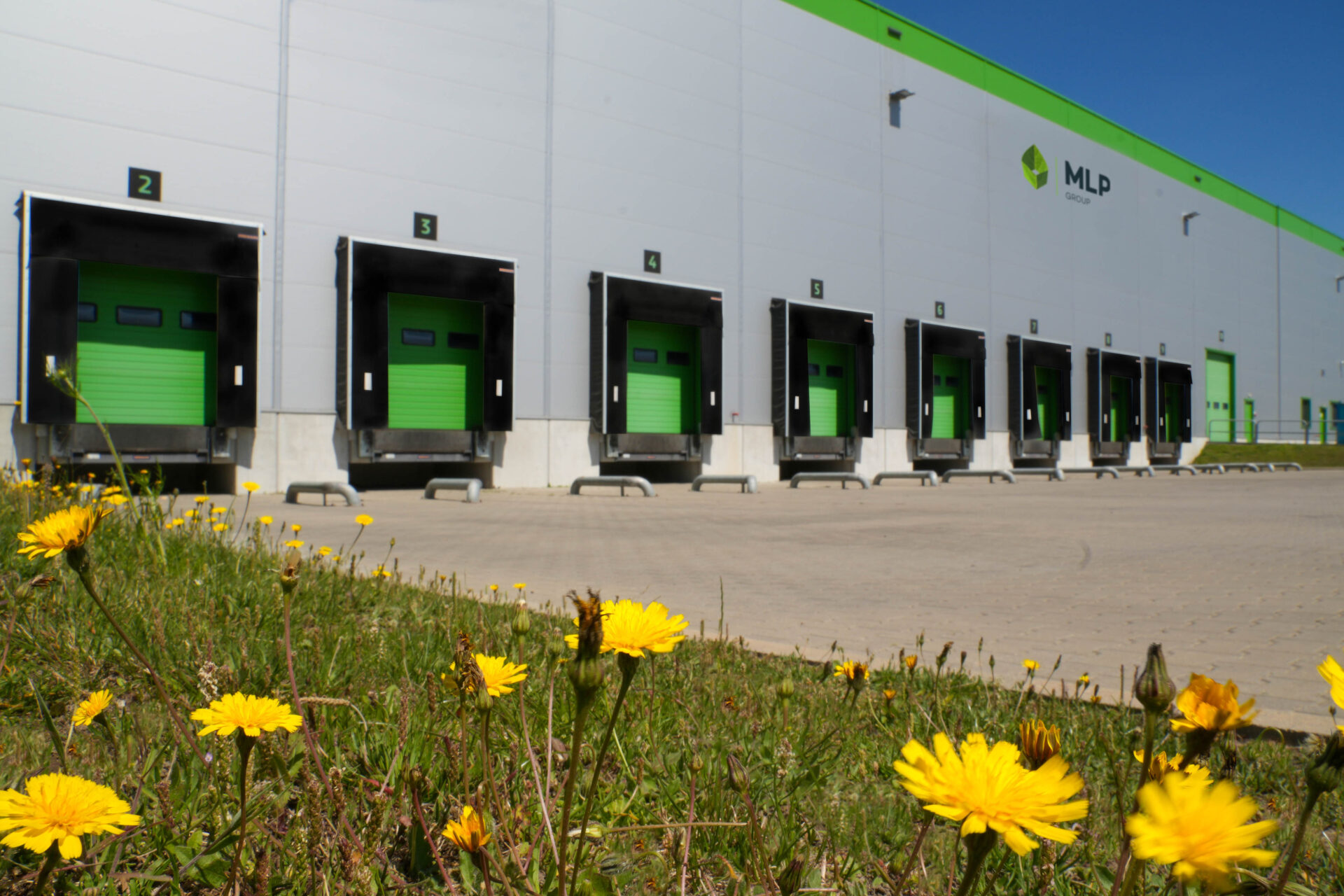The first international conference on industrial property was opened by Deputy Economy Minister Lachezar Borisov, who outlined the direction of good practices and constructive trends in the development of the industrial market in Bulgaria within the European market.
The organizer of the event, the owner of the industrial property platform BGSKLAD – Simeon Mitev, inspired the audience by personally sharing his professional experience in the sector as well as providing professional information about the partner network of BGSKLAD, working all over the country. Representatives of BGSL from the cities (Sofia, Plovdiv, Varna, Bourgas, Stara Zagora, Rousse, Gabrovo, Shumen, Sliven, Pleven) presented market analysis of their respective regions. Statistical information on employment and industrial property prices was also provided.
In Plovdiv the industrial property market was on the upside in 2017, however, there was a 15 percent drop in rental deals and 30 percent in sales. Atanas Laskov pointed out that for the past year the accents were on land purchases. Demand primarily focuses on the construction of warehouses for local demand from local business. The main interest is for warehouses with a small area up to 300 sqm.
Tony Tanev from BGSL-Varna, commented that demand and supply of industrial and logistics space is stable in Varna. In recent months there has been increasing demand for small warehouses for purchase from tenants. In the city there is an increased construction of new warehouses.
Prices remain stable between EUR 3.5-4.5 per sqm for newly built storage areas and between EUR 2 and 3 euro per sqm for the other warehouses, the first being the location and the the second – their condition. The cost of selling ready-made warehouses is estimated at between EUR 300,000 and EUR 600,000.
Tony Tanev aded that industrial land deals in urban locations are concluded at a price of between EUR 80 and EUR 160 per sqm. Demand is mainly driven by long-term warehouse tenants who invest to develop their own production and warehouse facilities.
Valentin Kossev from BGSL-Burgas, commented that rents remain unchanged. The greatest interest is attributed to sites with an area between 300 and 500 sqm. The prices for renting warehouses in the city are between EUR 2.5 and EUR 3.5 per sqm.
The biggest development is observed in properties and plots for sale, with prices varying between EUR 30 and EUR 150 per sqm, depending on the location.
Ognian Georgiev from Stara Zagora BGSKLAD, commented that competition for storage areas from e-commerce companies is increasing. In Stara Zagora there is also a growing interest in industrial development plots by companies that want to position their business in the region.
The most active for new areas are traders of agricultural machinery and equipment, showrooms and forwarding companies such as Econt, Speedy and Rapido. The rents of ordinary warehouses in the city vary between BGN 2.5 and BGN 3 per sqm, with Class A sites reaching up to BGN 5 per sqm. For the building plots prices vary between EUR 25-30 per sqm.
Rumen Nikolov from BGSL-Ruse, commented that the trends from 2017 have continued into 2018. The future of Rousse as a logistics center is related to the future Rousse-Veliko Turnovo highway, a possible second bridge over the Danube with Romania and the restoration of airport. The city has witnessed investor interest in acquiring properties and plots for the purpose of developing them int Class A warehouses. In Ruse there is a shortage of Class A warehouses and a deficit of small warehouses of 300 to 500 sqm. The largest demand is for regulated plots in the eastern and western industrial zones, Ruse Industrial Park and on the main motorways of the city.
The rental prices of the warehouse space in the city range from BGN 3 to BGN 5 per sqm. The sale price of regulated plots in the eastern and western zones are between EUR 15 and 25 per sqm in the areas bordering the exit highways of the city.
According to Katia Belcheva, in the city of Shumen there is a large deficit of modern warehouse space between 300 and 600 sqm. Two new projects were built in Shumen Industrial Park and a third is on the way. 80 percent of the first stage of development is sold out.
The rental prices of Class A warehouses in the city remain at the level of BGN 5 per sqm and Class B remain at a level between BGN 2 and BGN 3 per sqm. Acquisition prices for warehouse and industrial premises are between EUR 50 and 350 per sqm, with more and more buyers willing to pay a higher price for high-quality objects that fit their needs.
Georgi Georgiev from BGSL-Veliko Tarnovo said that the commercial real estate market has continued to grow rapidly, with transactions rising by 12 percent on an annual basis, and rental prices rising by 10 percent and reaching between BGN 3 and BGN 7 per sqm depending on the location and condition of the property. Selling prices are between EUR 400 and 700 per sqm.
Top industrial property consultants, such as Vladimir Gurdjiev, shared valuable statistical information on the approaches to preserving business in recent years. The messages for correct reliance on business signals as a secure factor in keeping the business in terms of the scale and specificity of the market in the country. Bulgarian investors and developers are conservative in the development of speculative projects and this brings them success in preserving the business, but on the other hand the lack of speculative projects reflects restrictive and rather repudiates potential innovative projects.
Rental prices in Bulgaria are comparable to those in CEE. Class A rents are relatively high, because there is a low percentage of land offered. However, it is expected that high rents will soon disappear as logistics needs of international companies coming to Bulgaria increases. Large international developers like Panattoni and Prologis are expected to follow and develop large warehouses.
Stefan Karpuzov, of Markovo Industrial Park, commented that when implementing large projects, it is important to build an external infrastructure, as well as localization of the project.
Recently, which impressed Mr. Karpuzov, in addition to clients from abroad, new types of clients have appeared, namely tenants from older stock in Plovdiv looking for new and more modern industrial properties with a better location.
Kiril Savov from MetalSystem presented trends for producing metal profiles and special attention to the obligations of responsible business and sustainable solutions for service – namely, optimization of space. MetalSystem, as a mono brand, is a major partner of investors looking for space optimization and has a strong resource of stockpiles to build commercial structures.
Engineer Hristin Harlanov introduced the concept of innovative construction and build management. Engineering Systems Ltd assists in the entire investment process, from the choice of the plot to the realization of the construction process. Supporting an early stage of investment intent, supporting the concept through flexible pricing and the availability of competitive preliminary budgets are the main focus of the company while working with investors.
The sixth panel covered the neighbouring countries of Turkey, Greece, Russia, Romania and Serbia.
From Serbia, Alexander Simonovic, presented the advantages that link it to the European Community. The free zones are located on major transport routes. 20 percent of the total volume of transactions is generated in the free zones. In 2017, 30,000 jobs distributed among multinational companies, with the largest share being in the automotive sector. The emphasis is on the free zone regime, two trains a week from the port of Bourgas to Pirot, an efficient administration, with state incentives such as VAT on electricity, gas and water supplies, customs relief, special customs exemptions agreements in Europe, a focus on security, of 122 hectares are in support of Serbia’s state policy on economic development. The opening of three logistics bases is expected, and according to the Financial Times, Serbia is one of the best Free Zones. So they participate in the founding of the Bulgarian-Serbian Chamber of Commerce of Pirot with more than 200 members. The Serbian Development Agency announced rental rates ranging from EUR 1 to 12 per sqm of warehouses and industrial buildings.
Turkish representatives of Colwell Banker, turned the attention to roads as a major factor for the development of trade. The development of road lines by air, land and water, with a main focus on work in Turkey to strengthen trade between Greece, Serbia, Bulgaria and Russia, as well as a link to the European Union. In connection with the price depreciation of the Turkish currency, Coldwell Banker confirmed that construction of new logistics zones in the Asian Zone of Istanbul is planned for up to five years. At present, property prices in Turkey have fallen twice and the market is open to foreign investment in land.
Russia was represented by Yevgeny Daimerov from SKLADMAN, a broker and developer of industrial properties in Russia. 25 million sqm of Class A warehouses have been built in Russia. They has been around a million sqm in the last 10 years leased out in the first three months of 2018. Demand for warehouses in the regions was half a million in 2017, and rose to 3 percent in 2018. The biggest demand is in retail space, especially among food retailers. Vacancy was 12-13 percent and fell to 8-9 percent in 2018, and there is a visible contraction in the market compared to 2 percent of the unoccupied space in Bulgaria. The second market in Russia, which creates much of the demand for warehouses, is in St. Petersburg. The new trend is build-to-suit trend, compared to speculative projects preferred years ago. The currency is stable against the euro. They have long given a lot of time and work together with the municipal government of Moscow, the topic of urban logistics, as a new trend. The concept of urban logistics and urban warehouses, inside the city. Renovation of old premises is an important element of the warehouse market. Numerov confirmed that 73 percent of B-class warehouses in Russia are multi-storey warehouses and 88 percent of class C are multi-storey.
According to JLL, there is 3.5 million sqm of industrial space in Romania, and in Bucharest, by the end of 2018, there will be about 2 million sqm. Investors have long-term plans to work in the country. Foreign direct investment in Romania is about EUR 750 million, while in Romania the automotive industry is quite developed and accounts for 13 percent of GDP. Further, GDP growth is predicted at 3 to 5 percent per year. There is an interesting trend in e-commerce. There are several companies that have about 30,000 sqm of e-commerce developments, which is 100 percent growth in this respect. Romania is the second market after Poland. JLL noted that e-commerce is not tied to location, and it is spread throughout the country and is already trending toward big cities.
Nikos Manomenides, President of the Greek Professional Association of Certified Real Estate Professionals, noted that in the Greek market there was a 30 percent drop in GDP. However, tourism has grown almost three times. Tax rates have attracted a number of Greek manufacturers to relocate their production in Bulgaria, where transport is a major factor in this respect. From EUR 1 to 5 for rental per sqm or EUR 300 to 700 are the prices on the warehouse market. Banks and funds are the main owners of real estate and this is the reason why a specific price can not be determined, “the market is under water”. In order to pay a lower price, emphasis is placed on cooperation. Manomedis announced that they have more than 2,000 licenses to legalize works, gas stations, solar panels. Greece has various flexible and efficient energy projects and is very strong in this sector. Container transportation services from Athens up to one-tenth of a transport in the opposite direction.
General sponsors of the event were MetalSystem and Markovo Industrial Park.







